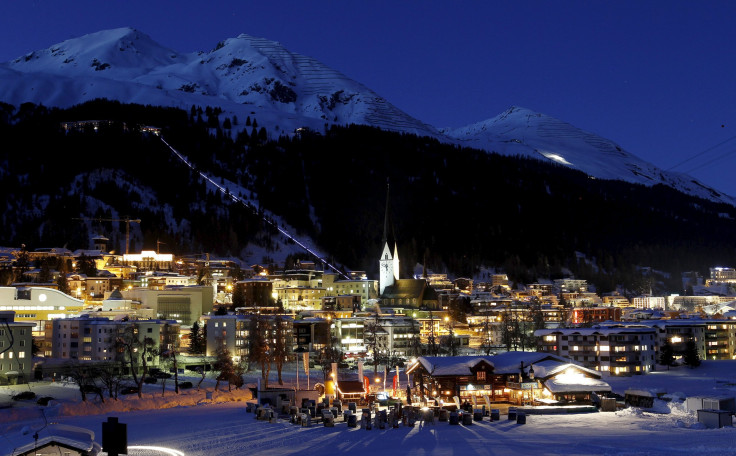Davos Meeting Preview 2016: What To Watch For At World Economic Forum In Switzerland

With the World Economic Forum set to begin Wednesday in Davos, Switzerland, world leaders, business tycoons and journalists have already begun flocking to the snow-capped resort town in the Swiss Alps in preparation for the annual event. The three-day series of conferences and informal meetings will take place loosely around the theme of the “fourth industrial revolution,” while leaders are set to discuss worldwide crises such as an oil glut and a Chinese economic slowdown.
The forum has often been dismissed as a champagne-fueled vacation for the economic elite, where leaders discuss theoretical concepts of economy without solving pressing world matters. The meeting’s worth cannot be measured in any finite series of policy changes, according to one leader in the field. “A lot of relationships are built and renewed,” John Veihmeyer, chairman of the consulting firm KPMG, told the Associated Press.
The lectures, conferences and discussions often serve as a backdrop for leaders to discuss economic matters privately. The theme of the forum will lend itself to a focus on robotics and how man will continue to interact with machine. Co-chairs of the forum include CEOs from General Motors, Credit Suisse, Microsoft and Hitachi.
“While the Forum’s mission has remained the same for more than four decades, we are confronting a more complex and incredibly interconnected world,” read a statement posted to the World Economic Forum’s official website. “As we enter the Fourth Industrial Revolution — a digital revolution expected to transform society — we have already seen massive technological changes begin to alter the nature of work, but this is just the beginning.”
We are up and running from #Davos. Follow our LIVE coverage of #WEF16 all week: https://t.co/8PcGtNZJVe https://t.co/NZp81LszKB
— Reuters Davos (@Reuters_Davos) January 17, 2016Several new faces, including recently elected Canadian Prime Minister Justin Trudeau and Argentine President Mauricio Macri, will participate in this year’s forum. German Chancellor Angela Merkel will be absent as she deals with an ongoing migration crisis back home.
More than 1 million people sought asylum in Europe in 2015, according to the International Organization for Migration, with nearly 1 million of them looking to settle permanently in Germany. A strong German economy, coupled with Merkel’s outspoken welcome have contributed to making Germany one of the top destinations for refugees, around 50 percent of whom are fleeing an escalating civil conflict in Syria.
The migration crisis in Europe has strained local governments, particularly in some of the countries of first arrival in eastern Europe as town budgets often supported the brunt of financing supplies for refugees such as food, shelter and medical care. Officials continentwide have struggled to come up with a unified plan of action. Economists have argued that a young refugee population could serve as a boon for the aging population of Europe, injecting key stimulus into stalling national economies.
Davos is supposed to be themed around economic impacts of AI. Instead, the dreary outlook for 2016 may dominate https://t.co/ULG7p4ZYXM
— Alexander C. Kaufman (@AlexCKaufman) January 17, 2016An ongoing oil glut caused by an imbalance of supply and demand is expected to be a defining issue at Davos. Exceptionally high production from the Middle East coupled with the shale boom in the U.S. pushed the oil supply to record levels as demand shrank, particularly in emerging markets. Oil executives have called for a production cap to keep the price from continuing to fall while OPEC has rejected that call.
A Chinese economic slowdown in August caused the price of oil to plummet, sending reverberations through international equity markets. The future of the industrial giant will have repercussions throughout the world economy, and international leaders have sought to ensure Chinese economic stability. Jack Ma, head of Chinese retail goliath Alibaba and Fang Xinghai, a representative from China’s financial regulator, are both expected to attend.
© Copyright IBTimes 2024. All rights reserved.





















